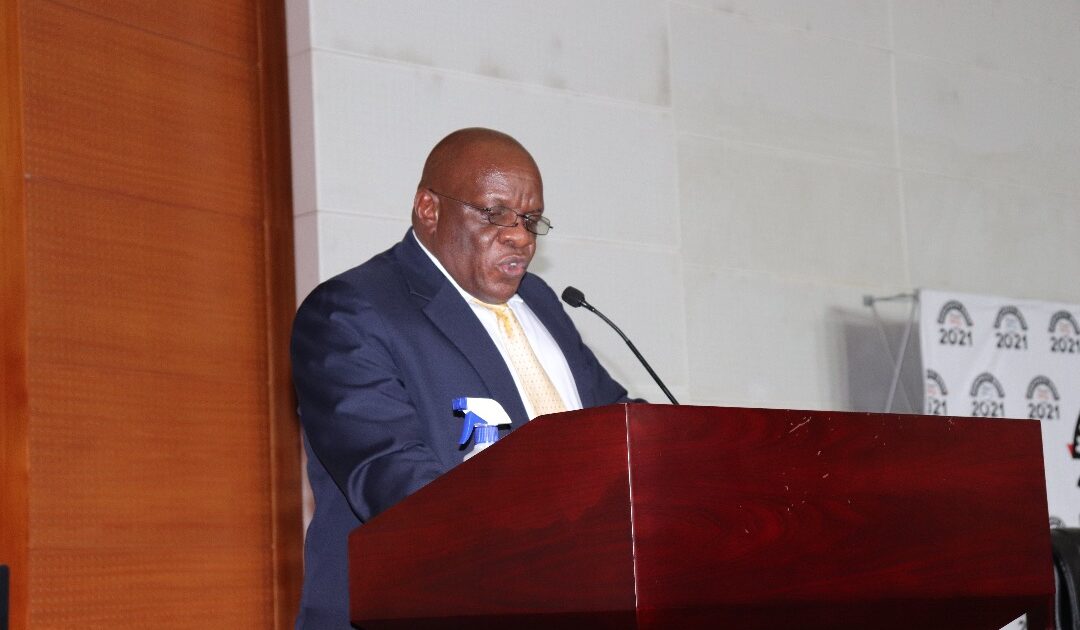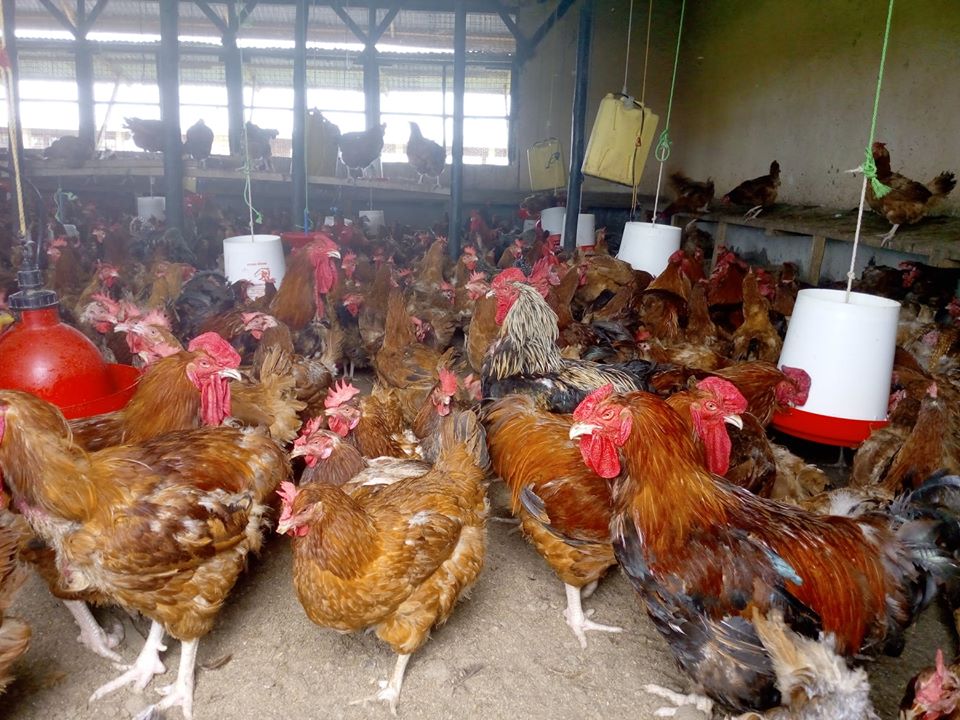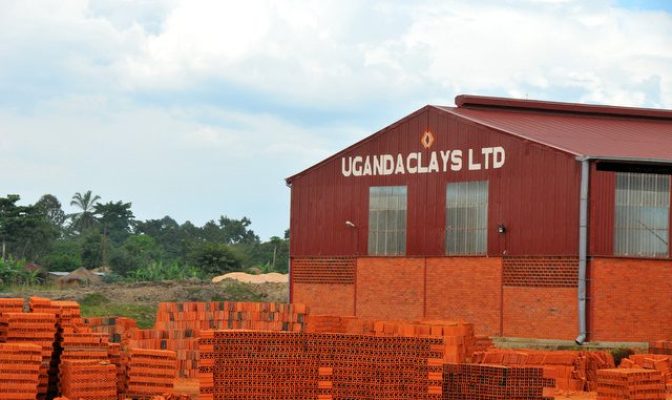Moses Kizige, the State Minister In Charge Karamoja Affairs
The Office of the Prime Minister (OPM) says it successfully met 95% of the manifesto targets, immensely supporting the realization of the Government Commitments towards NDP II.
The key areas of focus for the Office of the Prime Minister in the implementation of the 2016 –2021 NRM Manifesto included: Rehabilitation programmes under the Peace Recovery Development Plan (PRDP), Northern Uganda Social Action Fund (NUSAF), Karamoja Integrated Development Programme (KIDP) and the Luwero-Rwenzori Development Plan (LRDP), among others; Completion of paying civilian veterans in Luwero-Rwenzori region an appreciation
package (Akasiimo) Continued support for the gradual re-stocking of all the formerly war-ravaged /impacted and conflict areas, Continued provision of appropriate technologies, especially ox-ploughs to support the commercialization of agriculture in North, North-Western and North-Eastern Uganda, Continued compensation of those who lost cattle and other properties during insurgencies, Holding Barazas in districts, supervised by Resident District Commissioners (RDCs) in a bid to fight corruption, Strengthening institutional Framework for implementation of Government programmes and Operationalizing the Prime Ministers Delivery Unit (PMDU) among others.
As a result of these guidelines, the OPM Supported 10,032 sub-projects in the various sectors of the economy (agriculture, Environment, Fisheries, Forestry, Livestock, Community Roads, Trade, Value Addition, Water, Others) in the project implementation areas which has benefited 418,474 Households (3,061,061 people).
Upgrade of the Atiak – Laropi (65.8km) road to bituminous standard ongoing, Land acquisition of the right of way is ongoing. The first section (30km) from Atiak –Dzaipi was fully acquired and handed over. Paid 86% (263.78 acres) of the second section of land.
Site Camp construction is on-going.
Completed 35% of Works on Gulu Logistic Hub and completed the procurement of a Transaction Advisor.
Completed the construction of 132 Parish valley tanks and 3 boreholes in Karamoja sub-region.
Completed civil construction works on 16 dormitory blocks in primary and secondary schools in Karamoja sub-region.
OPM has also supported 2935 community driven enterprises/micro-projects and 278 Parish Community Associations (PCAs) to enhance household incomes and financial inclusion for youth, women, PWDs and other Vulnerable groups in Luweero-Rwenzori, Busoga, Bunyoro, Teso, Karamoja and Northern Uganda sub-regions.
OMP also procured and distributed 13,398 cattle for the gradual restocking program for Northern Uganda.
The OPM also procured and distributed 18,657 heifers, 3735 improved goats and 148 improved breeds of Jersy bulls, sahwal and Friesian breeds to farmers/Households in Karamoja sub-region.
Additionally, 78,527 Civilian Veterans were paid a one-off gratuity “Akasiimo” in fulfillment of H.E the President’s pledge.
The OPM also completed civil construction works for the education infrastructure in Karamoja sub-region -16 dormitories fully furnished with beds for retention of the girl child at school in Karamoja and 8 kitchens in (Amudat, Nakapiripirit, Nabilatuk, Moroto, Kotido, Abim districts)
OPM also supported Namalu Prisons to produce 1,254 MT of grain for the Primary school feeding program in Karamoja sub region.
It further constructed 99 valley tanks/dams/water sources and provided irrigation water systems to 8 selected farmers in Karamoja sub-region.
Moses Kizige, the State Minister In Charge Karamoja Affairs, who represented the Minister In Charge of General Duties in the OPM outlined other achievements as follow;
Completed civil construction works for Butaleja Farmers Produce Store, Luwero-Rwenzori regional offices and Nalutuntu HC III.
Provided production tools/farm implements such as:
252,023 hand hoes and 121,906 iron sheets to youth, Women, elderly and other vulnerable groups.
3,550 Ox-ploughs in Teso and Karamoja and 5,300 spray pumps 12,235 assorted seedlings.
25 Cattle crushes in Karamoja sub-region for vaccination and spraying.
48 walking tractors procured to the elders and women groups in Karamoja.
3 tractors for Namalu Prisons farm to produce food for the school feeding program.
Construction of five (05) 4-in-1 classroom blocks, 3 teacher houses and a 5 stance lined pit latrine at Kachumbala P/S in Bukedea, Kumi Boys P/S in Kumi, Kaberpila P/S in Kalaki, Obalanga SS in Kapelebyong and Ajoba P/S in Serere Districts are at various levels of completion.
Constructed a low cost house for Ms. Asao Florence’s house in Kalaki in fulfillment of HE the President’s pledge.
Constructed a 4-in1 classroom block with desks and solar lighting and a 5-stance pit latrine at Kaler P/S, Ngora District.
Supported vocational training in Northern Uganda by disbursing UGX. 3.61bn to Northern Uganda Youth Development Centre (NUYDC) to support skills and vocational training (tailoring, brick laying, salon, hydra form technology, carpentry and joinery, poultry and piggery farming, etc).
The NUYDC trains over five hundred (500) youth annually in Northern Uganda.
Constructed four (4) residential houses, eight (8) teachers houses and five (5) classrooms for beneficiaries of the Presidential pledges and Procured 6 Hydraform machines to support low cost housing and 2 tipper lorries in Northern Uganda and Luwero-Rwenzori sub-regions.
Completed solar installation works on 54 Acholi Chiefs houses.
Construction of the Teso regional office in Soroti is ongoing.
Supported NARO-Nabuin College to produce improved varieties/breeds for farmers in Karamoja sub-region such as:
30 Local Zebu heifers and 14 bulls for cattle breed improvement in Karamoja sub region.
Improved cassava varieties.
Improved maize and sorghum varieties etc.
Constructed 3 classroom blocks at Loroo Primary School, Amudat District.
Constructed a multi-purpose hall at Kotido Secondary School, Kotido District.
Completed construction of twenty (20) housing Units for the Grinding Mills and trained beneficiaries of the machines on how to operate, maintain and service them.
Provided water for production by drilling 12 boreholes and excavating 6 valley tanks.
Constructed 3 farmers’ training and demonstration centers at Narisae, Abilaep and Namalera.
Constructed green houses at 3 sites; Namalera, Narisae & Acherer.
Provided 5,260 farmers with improved and drought resistant seedlings.
Established 4 fully equipped Artificial Insemination (AI) Centers and 6 Livestock Mobile Veterinary Clinics in Karamoja.
Built Rural and Market Infrastructure through;
Rehabilitation of 32.5 Km rural roads.
Maintenance of 123.8 Km rural roads.
Construction of 15 Km community access rural roads almost done except.
Nangolemor-Loroo road whose contract has just been signed and works ongoing.
Supported Community Business Development through;
Facilitating the formation and registration of 4 produce and Livestock cooperatives and 13 farmer groups recruited to join the cooperatives.
Facilitating the formation and functioning of 4 SACCOs with total membership of 1,220 currently, 16 VSLAs recruited as members of the SACCOs.
Concluded the re-registration exercise for refugees in the country using the Biometric system which revealed that the total number of refugees in the country as at 31st May, 2020 was 1,424,373.
In partnership with the United Nations Secretary General, OPM hosted the Solidarity Summit in Kampala in June 2017 where both local and international partners gathered in Uganda to support the country host over 1 million refugees.
The summit raised over US$ 532m out of which only US$ 1.5m came directly to Government of Uganda which has been invested in 16 sub-projects under the primary sub-sector in four (4) districts (Arua, Lamwo, Moyo, Adjumani).
Demarcated 93,665 plots for resettlement of refugees.
Procured and distributed 65,684 tree seedlings to 355 Refugees and Host Communities in Rwamwanja, Nakivale, Oruchinga and Kyaka 2 Refugee Settlements.
Improved livelihood for refugees and host communities through the implementation of Development Response to Displacement Impact Project (DRDIP) by; Constructing 591 classrooms, 5 dormitories,3 laboratory blocks, 237 blocks of 5 stance latrines, 10 wards, 23 blocks of Health workers houses, 279.8Kms of community roads, 4 water supply systems, 28 blocks of teachers houses, supplying 12,320 desks, renovating 14 classrooms, supporting 1,315 households with non-traditional livelihoods and 3,206 households with traditional households and 31 Institutional and 1820 communal latrines.
Providing capacity building 563 members (Out of which 315 males and 251 females) of business groups and cooperatives in governance, business, marketing and vocational skills and Provision of vocational & business skills 152 people among other interventions.
CHALLENGES
Kizige said there are challenges in reporting and disbursement of NUSAF funds arising from:
Delays by the beneficiary districts to release funds to the communities.This affected timely implementation of NUSAF III subprojects. He said capacity building trainings have been conducted for district planners on reporting & data collection. Further, NUSAF MIS has been upgraded and now able to track disbursement of funds from H/Qs to the beneficiaries to facilitate timely collective action.
Another challenge is lack of control over the PRDP Grant arising from consolidation of the hitherto PRDP Grant into the DDEG. This, Kizige said is over stretching OPM supervisory and monitoring roles from district now to sub-counties.
As mitigation measures, the OPM secured additional funding for conducting Local Government Assessments effective
FY 2018/19. Further, guidelines to DLGs on the implementation of the livelihood improvement projects have been designed to be applied effective FY 2019/20.
2021-2026
In addition to implementation of all Government programs/activities highlighted above, OPM will also pay greater attention to the following areas:
Strengthening the Coordination Function of Government through existing institutional coordination frameworks and other platforms to rally all actors towards a single Government Agenda.
Rigorous monitoring and evaluation for all MDAs & LGs in the implementation of Government priorities (NDP III, NRM Manifesto, SDGs, etc) by critically assessing physical performance and achievement of outcome targets based on key selected indicators.
Facilitating rigorous implementation of selected National priorities through the Prime Ministers Delivery Unit (PMDU) which will provide a framework for enhancing coordination and planning processes with greater prioritization, implementation, monitoring and delivery of specific results.
Implementation of the ten (10) Year Bulambuli Resettlement Plan for the landslide victims targeting 10,000 people annually.
Establishing a National disaster monitoring, early warning and reporting system covering all disaster prone areas across the country.
Continuing with the implementation of DRDIP focusing on the development needs of the refugee host communities.
Continue with the Implementation of the livelihood programs targeting the poor and vulnerable households which exhibit high poverty rates and poor socio –economic indicators in the areas served by the Affirmative Action Programs in Northern Uganda, Bukedi, Karamoja, Teso, Bunyoro, Luwero-Rwenzori Triangle, Busoga, etc).
Minister Kizige said the Ministry of Public Service is currently reviewing OPM’s staffing structure as part of the overall restructuring process of Government as recommended in the NDP III.
The outcome of the restructuring exercise will enable OPM to have the requisite staffing structures to effectively execute her Mandate and is expected to strengthen the institutional mechanisms and systems for effective service delivery of NRM Manifesto 2021 – 2026, NDP III etc. through:
Real time tracking of all MDAs and LGs performance to achieve accelerated implementation of Government programmes; Empowering OPM to whip MDAs and LGs to attain results and inculcating a performance culture characterized by speed and rigor; Faster decision making to facilitate investment and businesses, and improved service delivery to our people; and Using the inter agency coordination framework to rally all actors towards a single Gov’t agenda of social-economic transformation (Middle Income status).
By Francis Otucu





